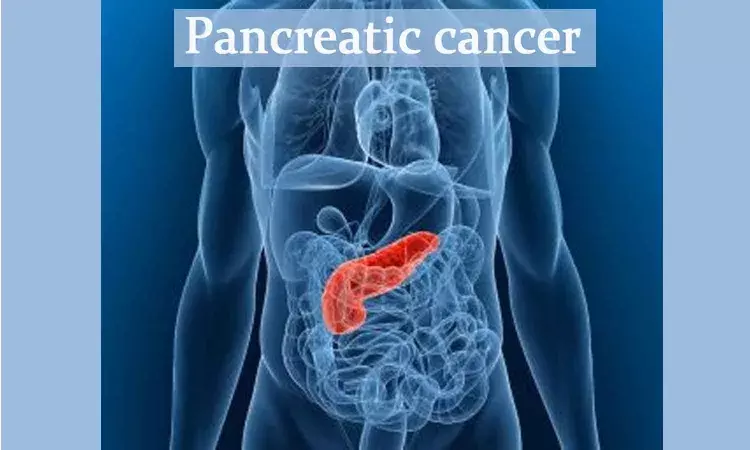- Home
- Medical news & Guidelines
- Anesthesiology
- Cardiology and CTVS
- Critical Care
- Dentistry
- Dermatology
- Diabetes and Endocrinology
- ENT
- Gastroenterology
- Medicine
- Nephrology
- Neurology
- Obstretics-Gynaecology
- Oncology
- Ophthalmology
- Orthopaedics
- Pediatrics-Neonatology
- Psychiatry
- Pulmonology
- Radiology
- Surgery
- Urology
- Laboratory Medicine
- Diet
- Nursing
- Paramedical
- Physiotherapy
- Health news
- Fact Check
- Bone Health Fact Check
- Brain Health Fact Check
- Cancer Related Fact Check
- Child Care Fact Check
- Dental and oral health fact check
- Diabetes and metabolic health fact check
- Diet and Nutrition Fact Check
- Eye and ENT Care Fact Check
- Fitness fact check
- Gut health fact check
- Heart health fact check
- Kidney health fact check
- Medical education fact check
- Men's health fact check
- Respiratory fact check
- Skin and hair care fact check
- Vaccine and Immunization fact check
- Women's health fact check
- AYUSH
- State News
- Andaman and Nicobar Islands
- Andhra Pradesh
- Arunachal Pradesh
- Assam
- Bihar
- Chandigarh
- Chattisgarh
- Dadra and Nagar Haveli
- Daman and Diu
- Delhi
- Goa
- Gujarat
- Haryana
- Himachal Pradesh
- Jammu & Kashmir
- Jharkhand
- Karnataka
- Kerala
- Ladakh
- Lakshadweep
- Madhya Pradesh
- Maharashtra
- Manipur
- Meghalaya
- Mizoram
- Nagaland
- Odisha
- Puducherry
- Punjab
- Rajasthan
- Sikkim
- Tamil Nadu
- Telangana
- Tripura
- Uttar Pradesh
- Uttrakhand
- West Bengal
- Medical Education
- Industry
High fasting blood sugar tied to development of pancreatic cancer: Study

Sweden: Impaired fasting blood sugar levels in people aged >55 are associated with pancreatic cancer risk, show results from a recent nested case-control study.
The study findings, published in the journal Pancreatology, impaired fasting glucose is an independent risk factor and should be studied further in risk assessment of pancreatic cancer including other risk factors in a larger study population.
Sara Jacobson, Surgery, Umeå University, Umeå, Sweden, and colleagues aimed to determine the risk association between fasting blood sugar levels and pancreatic cancer using systematically collected prediagnostic blood glucose samples in a prospective nested case-control study.
The study included participants from the Northern Sweden Health and Disease Study, including 182 cases that developed pancreatic cancer and four matched controls per case. The researchers analyzed blood sugar levels collected up to 24 years before pancreatic cancer diagnosis. Using the likelihood-ratio test, t-test, and log-rank test, the association between fasting glucose and the time to pancreatic cancer diagnosis, tumor stage and survival was determined.
The researchers found the following:
- The unadjusted risk of developing pancreatic cancer increased with increasing fasting glucose levels (OR 1.30).
- Impaired fasting glucose (≥6.1 mmol/L) was associated with an adjusted risk of 1.77 for developing pancreatic cancer.
- In subgroup analysis, fasting glucose levels were associated with an increased risk in never-smokers (OR 4.02) and non-diabetics (OR 3.08) (non-significant for interaction).
- The ratio between fasting glucose and BMI was higher among future pancreatic cancer patients and an increased ratio was associated with elevated risk of pancreatic cancer (OR 1.66).
- Fasting glucose levels were not associated with TNM stage at diagnosis or survival.
"Our findings showed that high fasting glucose is associated with an increased risk of being diagnosed with pancreatic cancer," concluded the authors.
Reference:
The study titled, "Hyperglycemia as a risk factor in pancreatic cancer: A nested case-control study using prediagnostic blood glucose levels," is published in the journal Pancreatology.
DOI: https://www.sciencedirect.com/science/article/pii/S1424390321001599
Dr Kamal Kant Kohli-MBBS, DTCD- a chest specialist with more than 30 years of practice and a flair for writing clinical articles, Dr Kamal Kant Kohli joined Medical Dialogues as a Chief Editor of Medical News. Besides writing articles, as an editor, he proofreads and verifies all the medical content published on Medical Dialogues including those coming from journals, studies,medical conferences,guidelines etc. Email: drkohli@medicaldialogues.in. Contact no. 011-43720751


